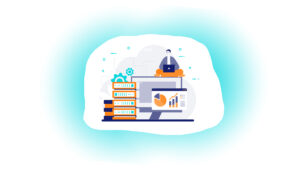In the business world, technological evolution is inevitable. As organizations grow, their legacy systems, also known as legacy platforms, often become a challenge. These systems, which were once groundbreaking, can now become outdated and limiting in terms of capacity, efficiency, and compatibility with the new demands of the market.
The modernization of legacy platforms has become a priority for many companies looking to stay competitive in the digital age. Among the tools leading this change, GeneXus stands out as a comprehensive and effective solution. In this article, we will explore the importance of modernizing legacy platforms and how GeneXus can be the key to driving digital transformation.
Challenges of Legacy Platforms:
Legacy platforms, although they have been instrumental in the development of many companies, present several challenges today. Lack of flexibility, technological obsolescence, and difficulty in integrating with new technologies are just some of the issues that organizations face when relying on legacy systems.
These systems are often difficult to maintain and update, leading to a decrease in operational efficiency and higher long-term costs. Furthermore, the inability to quickly adapt to market changes can result in missed business opportunities and decreased customer satisfaction.
The GeneXus Solution:
GeneXus emerges as a powerful tool to address these challenges. It is an agile development environment that enables organizations to modernize their legacy platforms efficiently and cost-effectively. GeneXus's uniqueness lies in its ability to automatically generate the code required for various platforms, from mobile applications to web and desktop systems.
Advantages of GeneXus in Modernization:
Fast Development: GeneXus uses a model-based approach, significantly speeding up the development process. This allows companies to modernize their legacy systems in record time, reducing implementation timelines.
Multiplatform Compatibility: GeneXus's ability to generate code for different platforms facilitates the transition from legacy systems to more modern and flexible environments. From mobile applications to cloud solutions, GeneXus enables adaptability to various technologies.
Easy Integration: GeneXus simplifies the integration of new functionalities and technologies without affecting the operation of existing systems. This ensures that organizations can adopt new innovations without operational disruptions.
Simplified Maintenance: The automation of the development process reduces the workload associated with continuous system maintenance. GeneXus facilitates updates and corrections, allowing companies to remain agile and responsive.
In conclusion, in a constantly evolving business world, the modernization of legacy platforms with GeneXus emerges as an intelligent and necessary strategy to ensure long-term viability and stay at the forefront of technological innovation.



